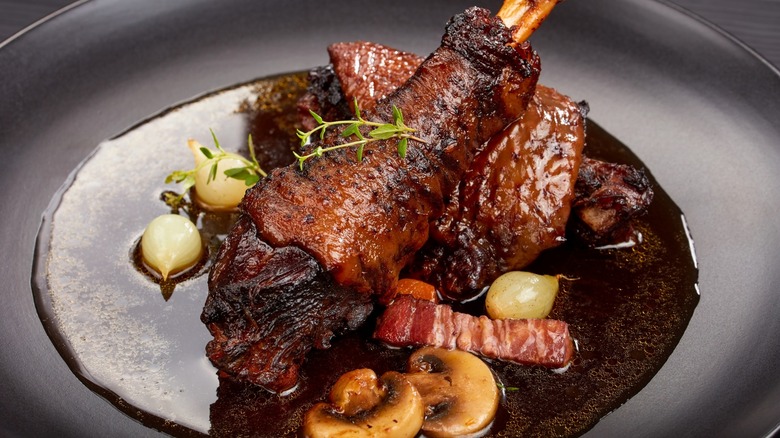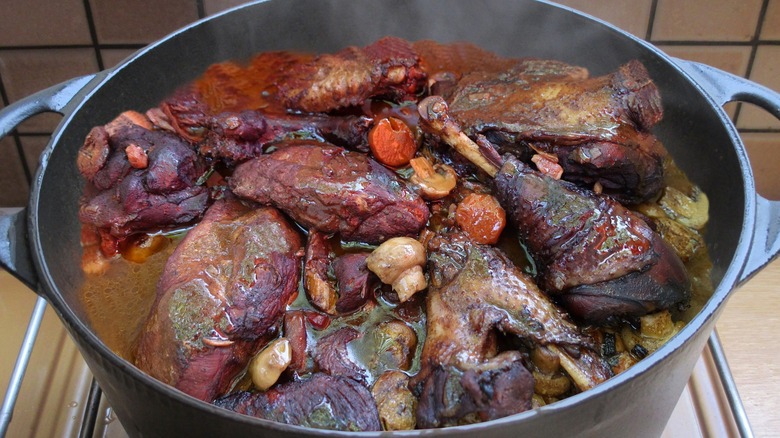The Science Behind Why Coq Au Vin Is So Tender
When you really want to impress folks with your culinary skills, a coq au vin should be on the menu. The cooking process for the elevated chicken stew is intricate, however. To learn how to achieve the correct tenderness of the bird, we reached out to a James Beard Award-winner and Michelin-starred chef, Gabriel Kreuther, who honed his skills in Michelin-starred restaurants in France and other European countries in his early career. Being intimately familiar with preparing coq au vin, his first words of advice for home cooks attempting to make the dish were, "The key ingredient is a good-quality red wine."
"Coq au vin is traditionally made with a larger, older bird – either a rooster or a large chicken – typically weighing between 3 to 4 pounds or more," Kreuther explained. "The bird is cut into 8 to 12 pieces (depending on its size) and marinated overnight in red wine." As is the case with many dishes we adore today, coq au vin's historical origins stem from the need to make use of anything edible. Nope specifically, rooster meat gets tougher with age, but the meat still has nutritional value. Marinating the animal in vino before cooking allows the acid and tannins in the wine to soften the protein.
This also improves how the bird tastes. "This marination process is essential, especially for tougher, older birds," Kreuther said. "The alcohol and tannins in the wine help to break down the dense muscle fibers, tenderizing the meat and infusing it with a deep, rich flavor."
Careful planning is crucial for tender coq au vin
Even the simplest of recipes can be botched, and that is certainly the case with complex fare like coq au vin. Kreuther explained that the most common reasons the dish doesn't come together are "Not marinating the meat long enough, poor planning, and a lack of patience. Rushing the process, like cooking over too high a heat or skipping steps, can compromise the depth of flavor that a dish like coq au vin deserves."
If you were going to roast a whole chicken in the oven, you likely wouldn't wing it without studying a recipe, and not merely scanning it for the Cliff Notes but truly trying to comprehend the details. "One of the most common errors is diving into the recipe without fully understanding it," Kreuther said. "Always read through a recipe several times before starting. Familiarize yourself with the steps, make sure all the ingredients are on hand, and set yourself up for success. Good cooking is good planning."
When making sophisticated cuisine like coq au vin, all the specific aspects of the dish are significant. From the kind of wine used to marinate the chicken — "ideally a Burgundy," according to Kreuther — to appropriate heat levels, timing, and the quality of accompanying ingredients, every detail matters. When done correctly, the results speak for themselves. "When you cook a larger chicken in the style of a stew, it becomes an entirely different experience – rich, flavorful, and deeply satisfying," Kreuther said. "These dishes are not only delicious but also incredibly rewarding to make."

